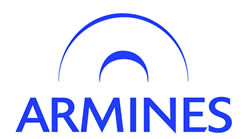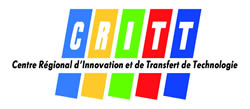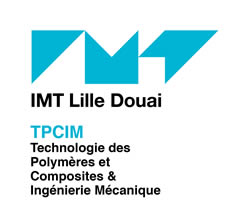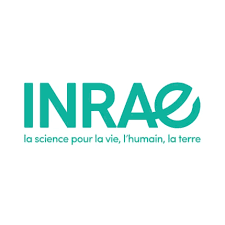COMPOSENS is based on the effective cooperation of 7 motivated partners with complementary fields of expertise, including: from Wallonia, Certech, ULg-GxABT and ValBiom; and from France, INRAE UMR FARE, CRITT MDTS, Mines Douai et Armines.
This project was made possible thanks to the support of the European Regional Development Fund (FEDER), the Walloon region, the Grand Est region, and the Ardennes department.
Certech
Certech (Centre de ressources technologiques en chimie) is a research & development partner and provider of analytical and technological services for companies involved in activities related to chemistry: polymers; pharmaceutical, medical and healthcare; environment and energy; automotive and transport; packaging; construction.
Its mission is to provide innovative solutions for the improvement or development of products and processes, respecting the principles of sustainable chemistry and the circular economy in order to meet industrial and societal needs.
It is a multidisciplinary team composed of 40 highly qualified and experienced employees, responsive and attentive to customers in three areas:
- Environment: Air Quality, Health & Safety, Energy, Circular Economy.
- Materials technology: Polymers and composites (bio-sourced), Emissions and odours, Lightweight materials, Mechanical recycling
- Chemistry and industrial processes: Intensified Continuous Processes, Micro/mesofluidic technologies, Catalysis and Synthesis, Chemical Recycling
These activities are supported by analytical and technological platforms.
Certech is certified ISO 9001, accredited ISO 17025 for the sampling and analysis of odours and volatile organic compounds and also benefits from specific approvals from car manufacturers (Renault and PSA) in this field. Certech is active in several standardization committees (ISO, CEN, Afnor) dealing with air quality, odours and volatile organic compounds.
CRITT-MDTS
The CRITT-MDTS (Centre Régional d’Innovation et de Transfert de Technologie) provides technical services and conducts industrial applied research programs for regional small- and medium-sized enterprises and industries, be they French or European, in a variety of specific technological domains, including:
- material characterisation;
- surface treatments and coatings;
- surface characterisation;
- …
The role of CRITT-MDTS in the COMPOSENS project consists of:
- Surface activation of natural fibres using plasma treatments, either at atmospheric pressure or in a partial vaccuum;
- Surface characterisation using X-ray photoelectron spectroscopy to study chemical changes of natural fibre surfaces
- Characterisation of laminate adhesion on the macromolecular scale through nanoscratch testing of natural-fibre-polymer composites
IMT Lille Douai
The IMT Lille Douai is an engineering school and a research centre composed of five departments, of which the department of Polymer and Composite Technology and Mechanical Engineering (acronym TPCIM), is most closely affiliated with the COMPOSENS project. The multidisciplinary team of TPCIM is composed of teachers, engineers, technicians and administrative staff. The department specialises in the processing and moulding of polymers (including bio-based polymers) and composites, as well as characterising the performance of these materials in a variety of applications. The TPCIM facilities house several polymer processing platforms, covering the relevant industrial processing and moulding techniques (including twin-screw extruders, blow-moulding, multi-component injection and 3D printing among others) as well as high-precision methods of characterisation for polymeric materials.
For this project, TPCIM will contribute the following:
- Processing and moulding of natural-fibre-polymer blends, with the capacity to mould by injection, extrusion, hot pressing, thermoforming, or additive fabrication, as well as thermal and mechanical characterisation of the finished products;
- Identification of the origin of unwanted sensory characteristics and development of solutions for these phenomena;
- Exploration of any relationship beween unwanted sensory characteristics and either the thermal or mechanical behaviour of the material.
INRA FARE
The INRAE FARE (Institut National de la Recherche Agronomique et de l’Environnement – Fractionnement des Agro Ressources et Environnement) has two separate scientific projects related to the use of lignocellulosic materials. First, the study of cell walls, from the scale of individual cellulose crystals up to that of whole fibres, and second, the application of lignocellulose, from molecules to macro-scale materials.
At FARE, the study of lignocellulosic fibres is based on cutting-edge economic and technical analysis of hemp production, primarily in France but with implications for other potential hemp-growing regions like Belgium.
For the COMPOSENS project, FARE provides biochemical, mechanical and morphological characterisation of fibres. FARE will also study the modifications of these fibres as a result of processing and blending in composite materials.
ULg- GxABT
Gembloux Agro-Bio Tech has an international reputation in biorefining, in the valorisation of molecules of biological origin, and in the corresponding industrial processes.
One expertise of this institution is the development of methods for the characterisation of complex biological structures which take into account variations in composition (e.g. between species, between different seasons, etc.). The research unit is also specialised in the characterisation, extraction, conversion and valorisation of the principal components of plant cell walls – cellulose, hemicelluloses, and lignin, as well as a variety of polycyclic aromatics, proteins and other valuable small molecules. Another expertise of the research group is in developing methods for the selection of raw materials to meet the specifications of a desired product or market.
For COMPOSENS, Gembloux provides expertise in the selection and characterisation of bio-based polymers, as well as the selection of raw materials with suitable characteristics for the processes and applications to be developed in this researh project. The Laboratory of Industrial Biological Chemistry (or CBI) will also be involved in the production of bio-based fibres through the application of a variety of treatments to raw biomass, including exctractions in dilute acids and bases, vapour cracking, steam explosion and treatment at high pressure. These treatments are intended to disintegrate the biomass so that the fibres may more easily be separated from unwanted matter. Once the fibres are extracted, they will be characterised in terms of surface and mechanical properties to predict their effectiveness as reinforcement in polymer matrices.
ARMINES
ARMINES (Association pour la Recherche et le Développement des Méthodes et Processus Industriels) is a research group working on industrially-relevant topics in partnership (with associate status) with high-level French engineering schools (including IMT Lille Douai, another COMPOSENS member). ARMINES is affiliated with the IMT Lille-Douai.
For the COMPOSENS project, ARMINES will study moulding processes and characterise composite materials using TPCIM facilities and equipment. ARMINES will also provide information to its industrial partners on implementation of polymer processing lines using bio-based fillers.
ValBiom
ValBiom is a Belgian association that promotes the valorisation of non-alimentary biomass. Experts in bio-based energy and products, Valbiom engineers are well-versed in the technical, economic, environmental, and legislative aspects of sustainable development. ValBiom therefore serves as a mediator for the industry by consulting with project managers, actors in the relevant sectors, and governing authorities.
Valbiom connects public and private partners with scientific institutions. Because they must liaise between many partners on a variety of projects, Valbiom engineers are capable of working in many capacities – by consulting, providing technical support and training, and by producing informational material.
For the COMPOSENS project, ValBiom will perform two tasks: they will develop a life-cycle analysis for biocomposites, and they will be responsible for communication and public relations.
CROSS-BORDER
The Franco-Belgian border region contains a variety of actors from every level of the plastics and biocomposites industrial value chains, from agricultural cultivators to manufacturing plants. The commercial enterprises in these chains which already use biocomposites or would like to begin using them (and particularly the small- and medium-sized enterprises), stand to benefit from the development of new products and technological solutions. It is the ambition of COMPOSENS to respond to the needs of these enterprises using the specialisation of its members in applied science to develop innovative solutions which are transferable to the reality of regional commercial enterprises.
For the benefits of COMPOSENS to be fully realised for the industrial stakeholders in the Franco-Belgian border region, it is imperative that the two countries continue their cooperation in supoprt of the project.










